In wartime, words become perhaps the most valuable weapon. The documentary Pages of Hope, created by the National Union of Journalists of Ukraine (NUJU), tells the story of the Trudova Slava newspaper from the front-line town of Orikhiv in Zaporizhzhia and its editor, Svitlana Karpenko, as well as the people who prove every day that journalism can be a true weapon of hope.
On June 2, during the General Assembly of the European Federation of Journalists (EFJ) in Budapest, the film’s first public presentation took place. The screening was attended by more than 120 participants from the General Assembly, representing 73 journalistic organizations from 38 European countries. The reaction was eloquent: after the film demonstration, journalists gave a standing ovation, honoring the courage of Ukrainian media workers.
“It is an honor for me and thousands of my colleagues that the premiere of our film took place right in the heart of European journalistic solidarity. This is a story about those who keep the voice of the community even in a city without electricity, without windows, without roofs. But with an unbreakable word and faith,” said Sergiy Tomilenko, the President of the NUJU, presenting the film in Budapest.
And on July 10, in Lviv, a conference was organized for Ukrainian journalists who gathered within the framework of a project between the International Institute for Regional Media and Information (IRMI, Ukraine) and the Fondation Hirondelle (Switzerland) to work together on the development of decision journalism practices. “It was touching. The documentary Pages of Hope was first seen by its main character, Svitlana Karpenko, the editor of the front-line newspaper Trudova Slava from the city of Orikhiv, Zaporizhzhia Region. Sergiy Tomilenko wrote about this on Facebook that day. Our film is a true story about local journalists who refused to leave their community, even when the newsroom was in ruins and drones were constantly flying over the city.
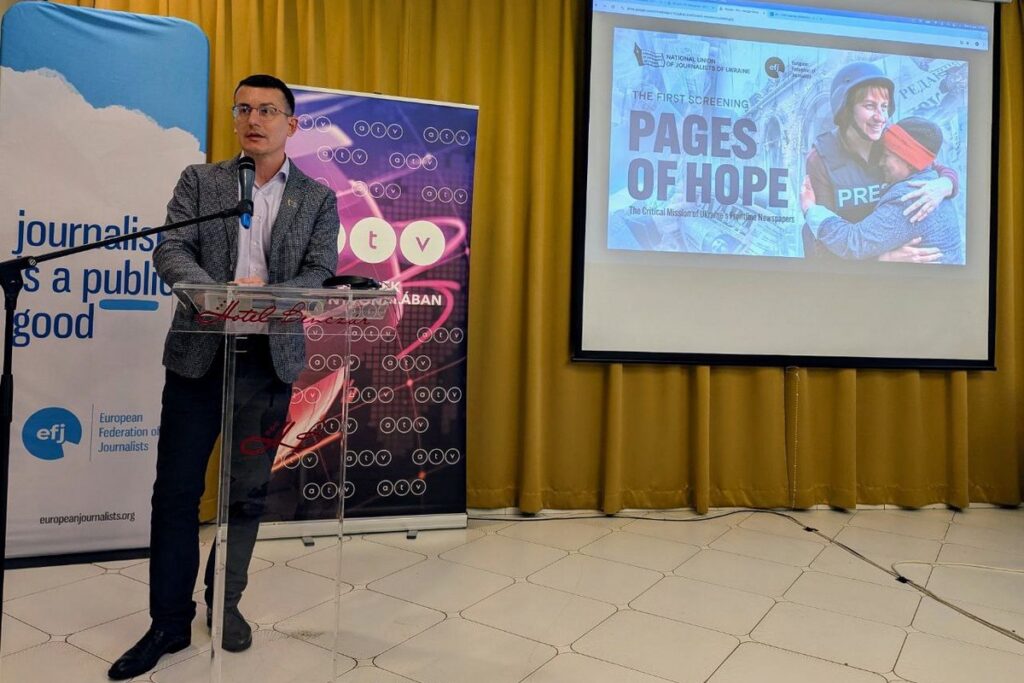
The film was shot by Yevhen Cherevko, a videographer, director, and editor. The shooting took place in an area close to active hostilities, 5–15 km from the front line. The film documents Svitlana Karpenko‘s trip with Sergiy Tomilenko to the residents of Orikhiv and the surrounding villages, who are being delivered bread as humanitarian aid, along with a fresh issue of the local newspaper.
“In the age of rapid digitalization, we must not forget where journalism began,” says Yevhen Cherevko. “When electricity, the Internet, and other conveniences that we are used to disappear, the newspaper remains the main source of information for people. No matter how digital we become, print media is the foundation.”
For the residents of the front-line Orikhiv, the newspaper has become much more than just a source of information. It has become a symbol of connection to life, to the community, and to hope.
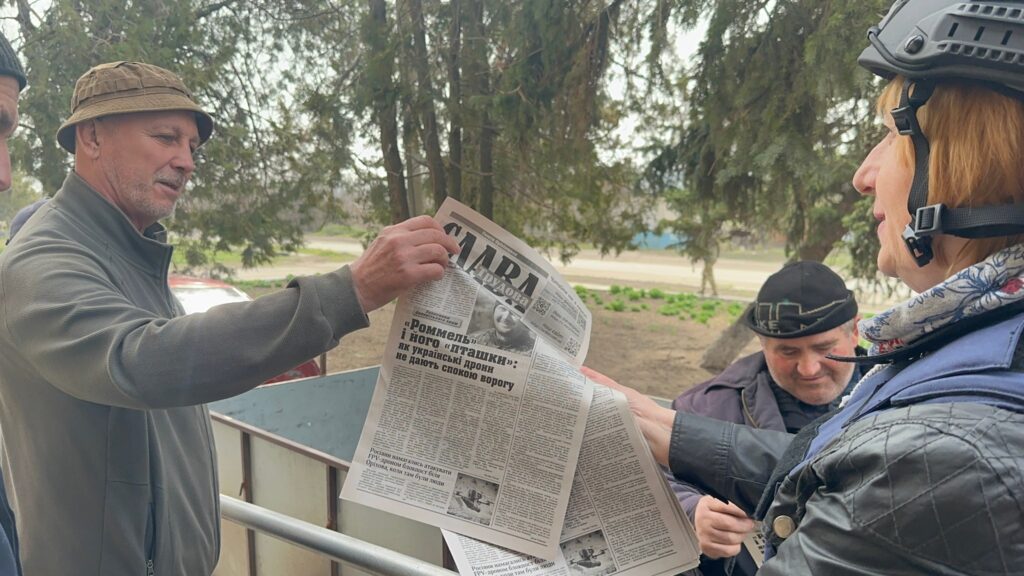
The voices of the residents of the front-line territories themselves are the most convincing in the film. They react to the delivery of the latest issue of the newspaper in different ways, but always very positively.
Svitlana, a resident of Orikhiv, is happy: “Although we learn from the news what is being done. And we don’t go anywhere. Our whole life is a basement… and a newspaper. We used to subscribe to many newspapers. My grandfather reads the newspaper “from A to Z”. And he constantly asks if there is a new Trudova Slava available. We definitely need newspapers.”
“At least we find out the news, what is being done,” says another resident of the community about the importance of newspapers for those who are cut off from the usual sources of information.
“Unfortunately, we don’t always manage to get a newspaper. And it would be good if we could,” say residents of remote villages, emphasizing the urgent need for information.
“At least some information. Because we are completely cut off from the world,” is the cry of the soul of those for whom the newspaper becomes the only connection with the outside world.
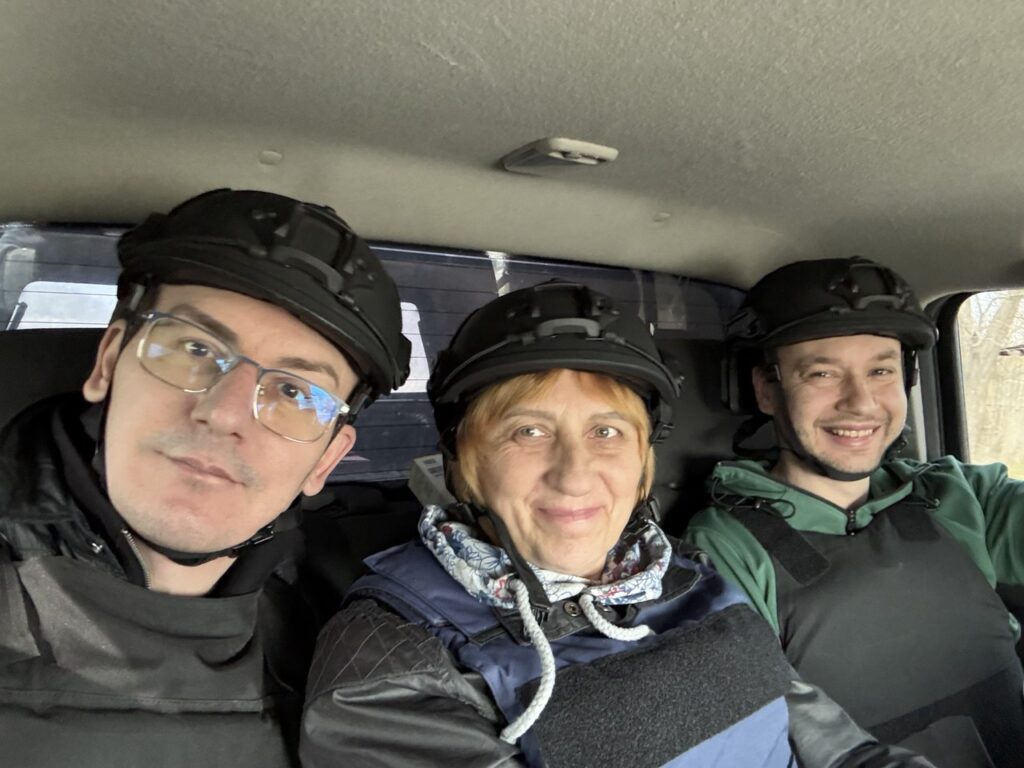
“The main source of information for people in the Orikhov region remains the newspaper,” Svitlana Karpenko explains the special role of the newspaper in wartime. “It is important as a source of news, but even more important – for people to maintain contact with the community, with those who lived nearby….”
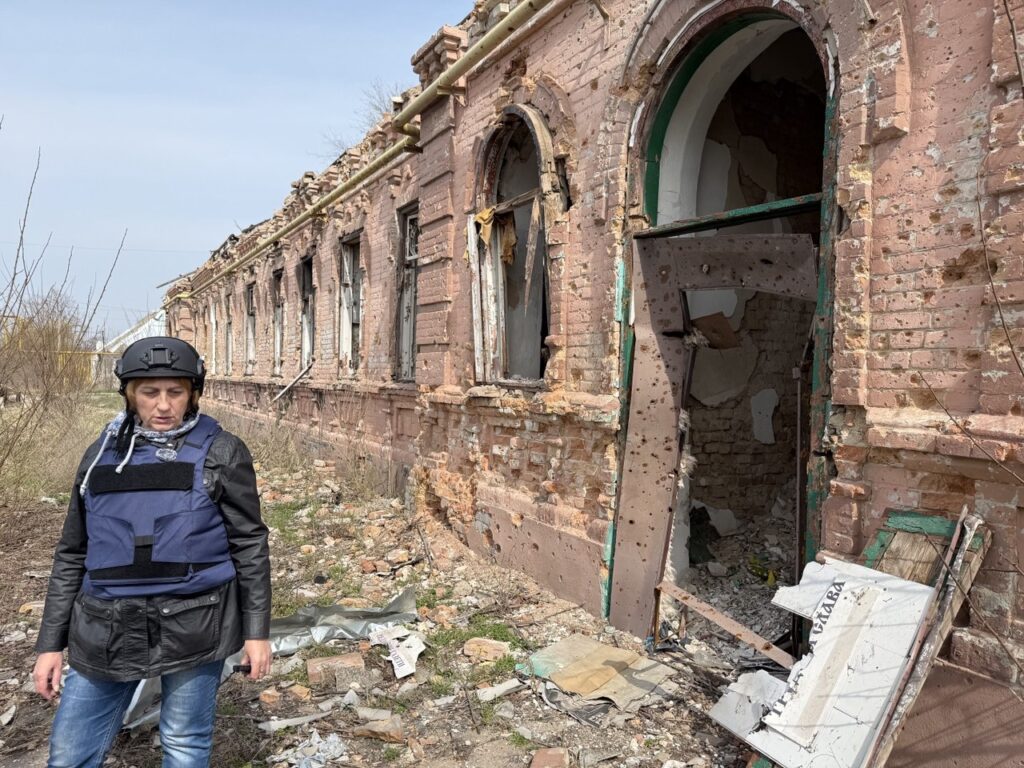
Svitlana complains that now, unfortunately, delivering the newspaper has become more dangerous because of drones that hunt everything and everyone, both the police, the State Emergency Situations Service (SESS), and civilians. It has become too dangerous to simply move around the city.
“If the circulations were published more often, it would be better. Because people are waiting for the newspaper at checkpoints and asking to read our Trudova Slava,” confirms the importance of Svitlana Ovcharenko‘s work, according to Mykola Vinichenko, the head of the military administration of Orikhiv.

The head of the Zaporizhzhia regional military administration, Ivan Fedorov, provides impressive figures.
“By February 24, 2022, on the territory there were 170 media outlets in the region. Unfortunately, more than 70 percent of media outlets have stopped operating,” the civil servant says. “However, thousands of residents live in front-line areas today, and they also have the right to receive objective information. Therefore, today, print media are one of the few sources of information for front-line areas.”

Sergiy Tomilenko talks about the mission to support front-line media, which was undertaken by the NUJU.
“I started the program of visiting front-line settlements from Orikhiv,” he says. “Now, two years after my previous trip here, I am proud of Trudova Slava, of Svitlana Karpenko. Our hopes that the newspaper is needed by people living in close proximity to the front have been justified… We see that front-line newspapers are a symbol of hope for people living in extraordinary circumstances, in conditions that are generally unimaginable in peaceful times. Of course, we admire the work of war correspondents of major publications, including international ones. However, with all due respect, they come for a week or ten days, after which they return to their offices. And here, in fact, the place of work is the front.”
The newspaper Trudova Slava is one of more than 30 local newspapers that were revived in the front-line territories thanks to the activities of the NUJU and the network of Journalists’ Solidarity Centers (JSC) operating in six regions of Ukraine.
Pages of Hope is not just a documentary. It is a testimony to the power of words in the darkest times, about people who do not give up, even when everything is destroyed. This is a story about how journalism can become a true act of resistance and hope.
Sergiy Tomilenko sums up the mission as follows:
“It is important for me to understand that what we support, front-line publications, matters, and that people need it. To achieve this, we unite international partners, convincing them that such journalism is crucial, as it saves the lives of thousands of Ukrainians. We will continue to support front-line media and the right of thousands of Ukrainians to access important information during the war.”
Pages of Hope is a film about journalistic indomitability, but in reality, it is a film about the indomitability of the human spirit. About the fact that even in the darkest times, people do not stop searching for the truth, connection with each other, and hope for a better future.
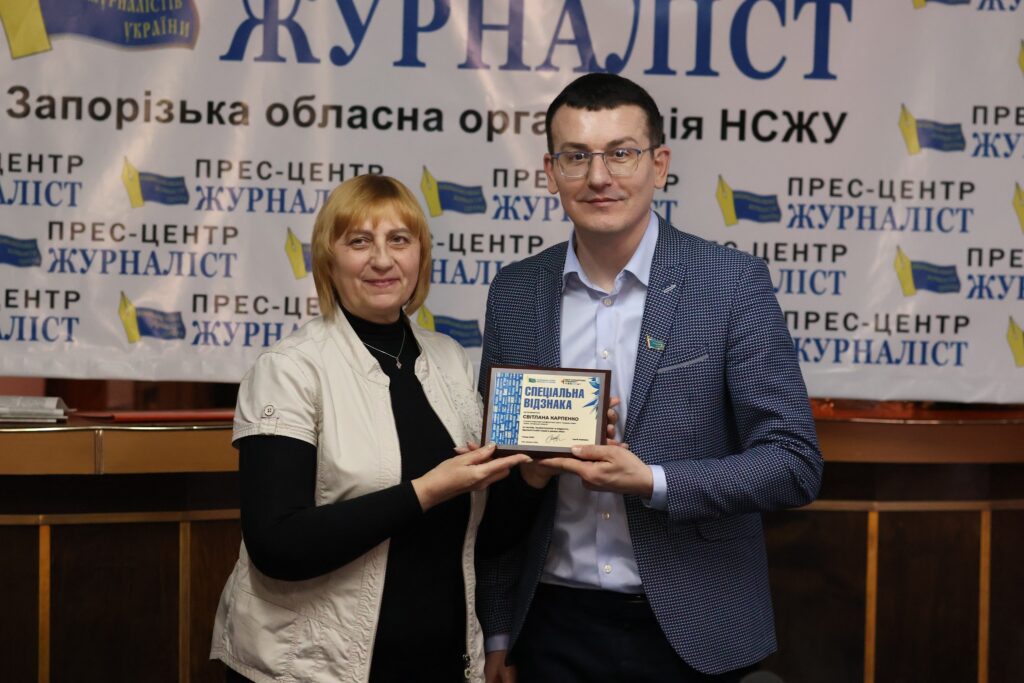
NUJU Information Service

 THE NATIONAL UNION OF
JOURNALISTS OF UKRAINE
THE NATIONAL UNION OF
JOURNALISTS OF UKRAINE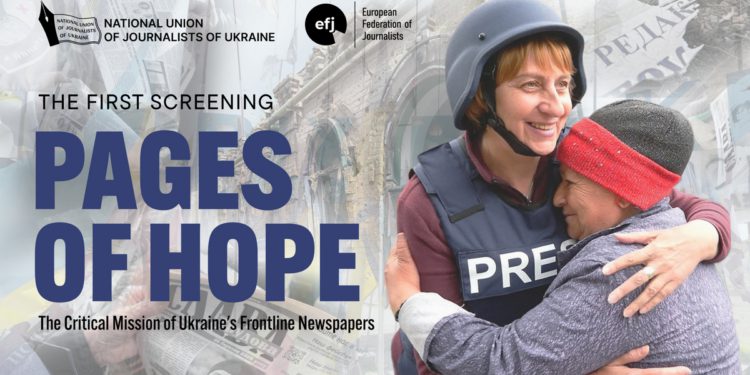
















Discussion about this post